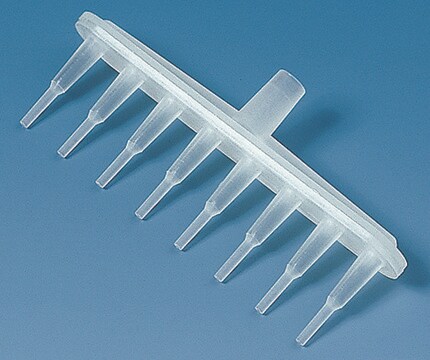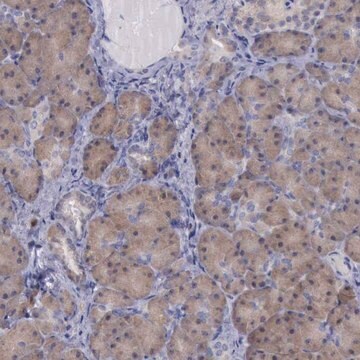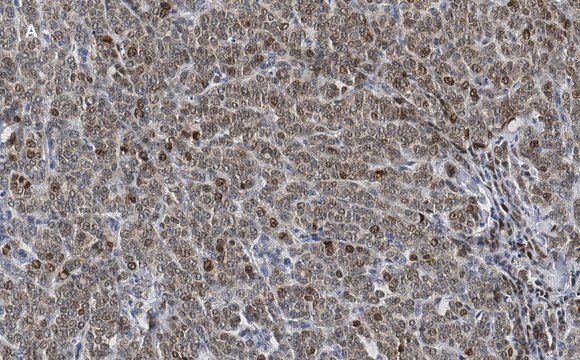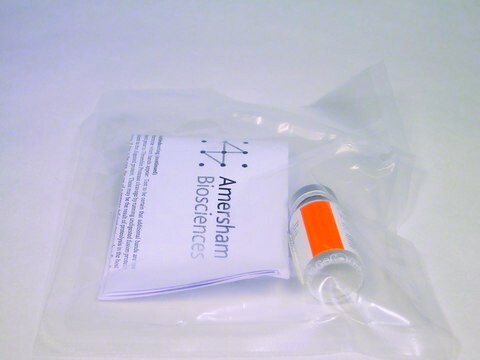SAB1404058
Monoclonal Anti-CD46 antibody produced in mouse
clone 1B6, ascites fluid
Synonym(s):
MCP, MGC26544, MIC10, TLX, TRA2.10
About This Item
Recommended Products
biological source
mouse
conjugate
unconjugated
antibody form
ascites fluid
antibody product type
primary antibodies
clone
1B6, monoclonal
mol wt
antigen ~37 kDa
species reactivity
human
technique(s)
indirect ELISA: suitable
western blot: 1-5 μg/mL
isotype
IgMκ
NCBI accession no.
UniProt accession no.
shipped in
dry ice
storage temp.
−20°C
target post-translational modification
unmodified
Gene Information
human ... CD46(4179)
General description
Immunogen
Sequence
EEPPTFEAMELIGKPKPYYEIGERVDYKCKKGYFYIPPLATHTICDRNHTWLPVSDDACYRETCPYIRDPLNGQAVPANGTYEFGYQMHFICNEGYYLIG
Physical form
Disclaimer
Not finding the right product?
Try our Product Selector Tool.
Storage Class Code
11 - Combustible Solids
WGK
WGK 1
Flash Point(F)
Not applicable
Flash Point(C)
Not applicable
Choose from one of the most recent versions:
Certificates of Analysis (COA)
Don't see the Right Version?
If you require a particular version, you can look up a specific certificate by the Lot or Batch number.
Already Own This Product?
Find documentation for the products that you have recently purchased in the Document Library.
Our team of scientists has experience in all areas of research including Life Science, Material Science, Chemical Synthesis, Chromatography, Analytical and many others.
Contact Technical Service







![Monoclonal Anti-HIV-1 p24 [7F4] antibody produced in mouse purified antibody (Protein A IgG)](/deepweb/assets/sigmaaldrich/product/images/450/733/43d24303-da45-47eb-ba25-f661717edf99/640/43d24303-da45-47eb-ba25-f661717edf99.jpg)
